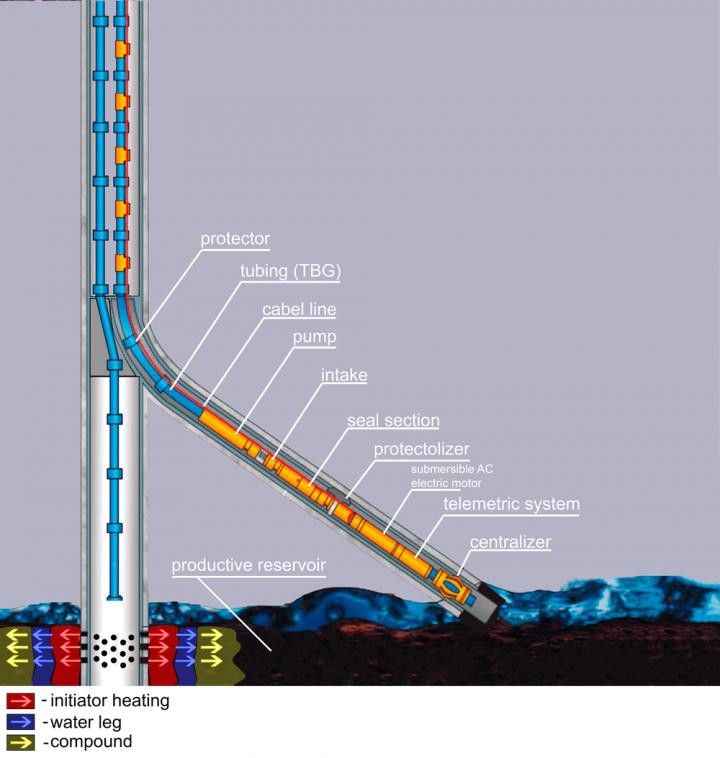The innovative technology is cost-efficient, environmentally friendly and efficient

Credit: @SamaraPolytech
Recently in Russia there has been a significant increase in the share of hard-to-recover oil reserves – these are high-viscosity hydrocarbons or reserves in low-permeability reservoirs (porous or fractured rock). Typically, thermal and chemical methods are used to extract such oil, often in combination with each other. However, the cases of using the thermal methods ones are rather frequent as the only effective, even though high temperatures can damage the formation. The technology of a dual-well system, suggested by the research team that includes a graduate student of Samara Polytech Sergey Gubanov, will help to avoid this. The latest research results are published in the Journal of Petroleum Science and Engineering (doi.org/10.1016/j.petrol.2020.107554).
“Through one shaft we will heat the formation, and through the other one we will obtain oil”, Sergey Gubanov, a graduate student of the Department of Development and Operation of Oil and Gas Fields of Samara Polytech explains. “This technology will significantly increase the process of “difficult” oil recovery and reduce the cost of traditional wells construction”.
The economic benefit of the Polytech methodology is based on the fact that it’s not the steam that is injected into the formation in order to heat it and liquefy oil (dissolving heavy components in it), as provided by the traditional technology, but the special organic compounds that are capable of heating the reservoir up to 110-130 ° C by interacting with each other. The technology does not require a large amount of specialized equipment. In addition, the use of exclusively organic substances makes the technology quite environmentally friendly.
“Of course, my cherished dream is to obtain an artificial oil – to learn how to create it in the laboratory conditions in order to stop “picking” the Earth and use the oil not as a raw material. Indeed, for example, high-viscosity and bituminous oils contain rare earth metals such as vanadium and nickel. As Mendeleev said, ‘burning oil is the same as burning banknotes’,” the young scientist shares his plans.
The research on the development of oil production technology using the dual-well system is carried out with the financial support of the RFBR.
###
For reference:
Samara State Technical University (SSTU, Samara Polytech) as a flagship university offers a wide range of education and research programs and aims at development and transfer of high-quality and practically-oriented knowledge. The university has an established reputation in technical developments and focuses on quality education, scientific and pragmatic research, combining theory and practice in the leading regional businesses and enterprises. Education is conducted in 30 integrated groups of specialties and areas of training (about 200 degree programs including bachelor, master programs and 55 PhD programs) such as oil and gas, chemistry and petrochemistry, mechanics and energy, transportation, food production, defense, IT, mechanical and automotive engineering, engineering systems administration and automation, material science and metallurgy, biotechnology, industrial ecology, architecture, civil engineering and design, etc.
Media Contact
Roman Naumov
[email protected]




